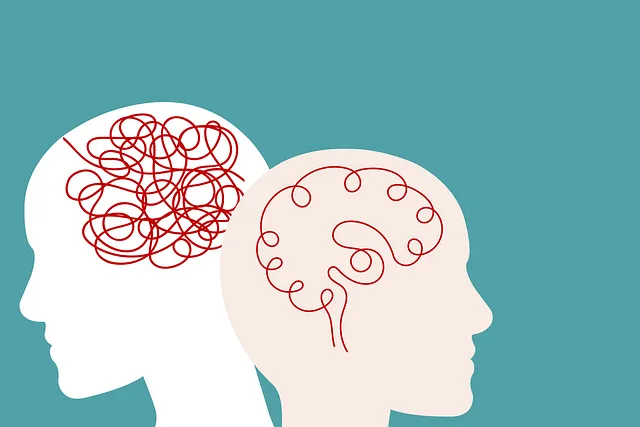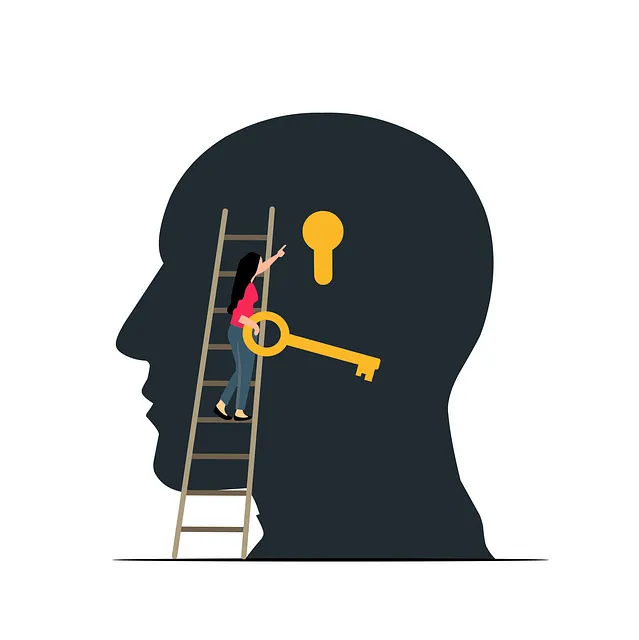Superior Kaiser Permanente behavioral health providers lead the way in depression prevention and management through personalized care. They educate patients on diverse symptoms, offer expert guidance, and provide culturally sensitive treatment options. By combining evidence-based strategies like CBT with proactive self-care practices, they empower individuals to manage their mental health effectively. The team promotes healthy lifestyle habits, stress reduction techniques, and social support networks for optimal well-being. Their Mental Wellness Podcast Series and expert training foster resilience, ensuring better depression prevention and improved public health outcomes.
Depression is a prevalent yet complex condition, affecting millions worldwide. This article explores comprehensive strategies to prevent depression, offering insights into its early recognition and effective management. We delve into the crucial role of superior Kaiser Permanente behavioral health providers, who are at the forefront of prevention efforts. Additionally, it covers lifestyle changes, therapeutic options, and the power of social connections in combating this illness. By understanding these approaches, individuals can empower themselves and others to build resilience and promote mental well-being.
- Understanding Depression: Recognizing the Signs and Symptoms
- The Role of Kaiser Permanente Behavioral Health Providers in Prevention
- Lifestyle Changes for Better Mental Health
- Therapeutic Approaches to Combat Depression
- Building a Supportive Network: Social Connections and Depression Prevention
Understanding Depression: Recognizing the Signs and Symptoms

Depression is a complex mental health condition that impacts millions worldwide. Recognizing the signs and symptoms early on is crucial for effective prevention and treatment. The team at Superior Kaiser Permanente behavioral health providers emphasizes the importance of understanding depression’s subtle yet profound effects on an individual’s daily life. From persistent feelings of sadness to significant changes in appetite and sleep patterns, these indicators can vary widely from person to person.
The expertise of these superior healthcare providers includes offering Crisis Intervention Guidance and providing comprehensive Mood Management strategies tailored to each patient’s unique experience. Cultural Competency Training is also a key aspect of their approach, ensuring that every individual receives care that respects their background and promotes healing. By being vigilant about these signs and seeking support from experienced behavioral health professionals, one can take proactive steps towards maintaining emotional well-being.
The Role of Kaiser Permanente Behavioral Health Providers in Prevention

Superior Kaiser Permanente behavioral health providers play a pivotal role in depression prevention, offering specialized services tailored to individual needs. Through the Mental Wellness Podcast Series Production, these providers utilize innovative tools like audio content to educate and engage patients on topics like emotional regulation and stress reduction methods. By integrating these evidence-based strategies into regular care, they empower individuals with coping mechanisms to proactively manage their mental health.
The expertise of Kaiser Permanente behavioral health providers lies in their ability to provide personalized support, recognizing that depression prevention is not one-size-fits-all. They employ various techniques, from cognitive-behavioral therapy to mindfulness practices, ensuring patients gain the skills necessary for emotional well-being. This proactive approach not only prevents depressive episodes but also fosters a deeper sense of resilience, enabling individuals to navigate life’s challenges with greater ease.
Lifestyle Changes for Better Mental Health

Adopting healthy lifestyle habits can significantly contribute to depression prevention and overall mental well-being. The team of superior Kaiser Permanente behavioral health providers emphasizes that maintaining a balanced routine is key. Regular physical activity, for instance, releases endorphins, which are natural mood lifters. Incorporating activities like walking, yoga, or even dancing into your weekly schedule can provide a much-needed energy boost and enhance your overall sense of well-being.
Additionally, prioritizing quality sleep and managing stress levels through techniques such as mindfulness meditation or conflict resolution skills training can make a profound difference. Building confidence and learning effective communication strategies, like those taught by Kaiser Permanente’s behavioral health experts, empowers individuals to navigate challenging situations with resilience, reducing the risk of depressive episodes.
Therapeutic Approaches to Combat Depression

Depression can be effectively managed through a variety of therapeutic approaches offered by superior Kaiser Permanente behavioral health providers. Cognitive Behavioral Therapy (CBT) is one such evidence-based method that focuses on identifying and changing negative thought patterns, helping individuals develop coping strategies to improve their mood and overall mental wellness. This approach has proven successful in treating depression and preventing burnout, especially when combined with regular self-care practices.
Additionally, the Mental Wellness Podcast Series Production can play a significant role in enhancing mental health awareness and promoting resilience. These podcasts often cover topics related to stress management, confidence boosting, and navigating difficult emotions—all crucial aspects of maintaining good mental health. By listening to these informative resources, individuals can gain valuable insights and tools to support their journey towards better mental wellness and prevent depressive episodes.
Building a Supportive Network: Social Connections and Depression Prevention

Building a strong support network is a vital component of depression prevention. Social connections play a crucial role in maintaining mental well-being. The Superior Kaiser Permanente behavioral health providers emphasize that having a supportive system in place can significantly reduce the risk and impact of depressive episodes. This includes close friends, family members, or even support groups who can offer understanding, empathy, and assistance during challenging times. Engaging in regular social activities, sharing experiences, and fostering open communication are all part of cultivating this network.
The role of healthcare providers is also enhanced through Cultural Competency Training to address the mental health needs of diverse communities effectively. By recognizing and reducing the Mental Illness Stigma, Self-Care Practices can be encouraged, promoting proactive management of mental well-being. These efforts collectively contribute to creating an environment where individuals feel empowered to seek help, fostering better depression prevention and overall public health.
Depression prevention is a multifaceted approach, and integrating strategies from various sections can significantly contribute to overall mental well-being. While understanding depression’s signs and symptoms is crucial, the support of superior Kaiser Permanente behavioral health providers plays an indispensable role in early intervention and long-term management. Adopting lifestyle changes, exploring therapeutic approaches, and cultivating a robust social network are all effective tools in combating this condition. By combining these strategies, individuals can navigate their mental health journey with enhanced resilience and improved quality of life.





